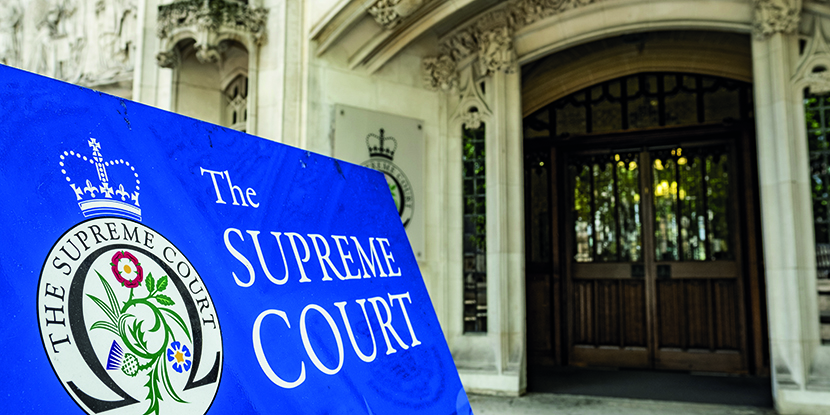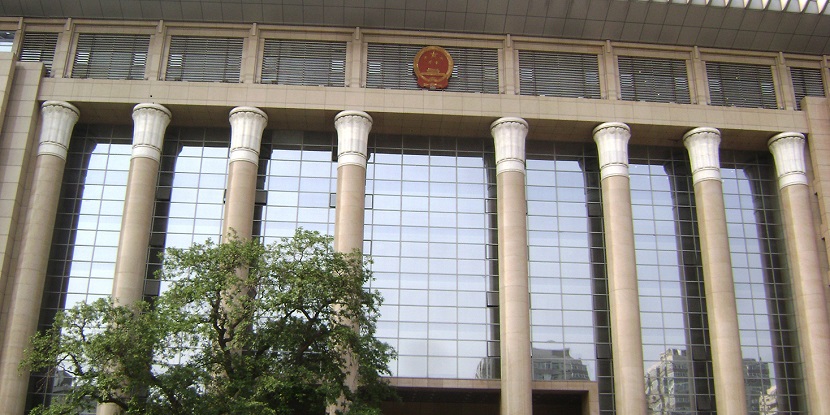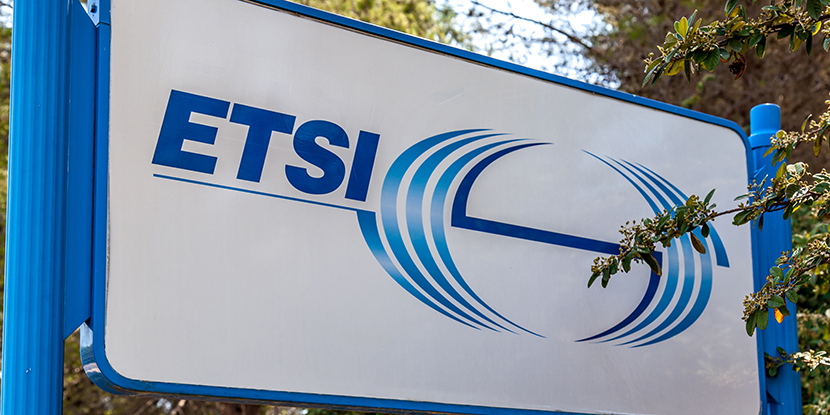Worlds apart in SEP litigation
If SEP holders and implementers cannot agree on a FRAND rate in important FRAND licence negotiations, litigation is a popular way to impose an agreement. Civil courts in the US, China and Europe are the main venues in global FRAND disputes. But the case law varies considerably. An overview of the most important SEP decisions in the US, China, Germany, France, the Netherlands and the UK.
20 April 2023 by Konstanze Richter (Journalist)
Often, the economic positions of patent holders and users are too far apart for bilateral negotiations to lead to an agreement. If this is the case, arbitration proceedings – but more frequently, legal action before a civil court – are a means to an end from the SEP holder’s perspective.
The 3G and 4G standard increased the number of SEP suits markedly. With the 5G standard and the rise of the Internet of Things in many areas of everyday life, the problems will likely intensify. After all, after the automotive industry, SEP holders are now targeting other sectors that use connectivity for their products. This widens the pool of potential licensees, but also of unwilling SEP users. Experts are therefore certain that infringement suits will increase globally.
The 3G and 4G standard increased the number of SEP suits markedly
Although people in business are reluctant to put themselves at the mercy of third parties when it comes to determining sums in the millions, like those that FRAND licences may involve, many in the market are currently relying on the civil courts to provide a clear framework for setting a FRAND rate. But here, a problem arises: not only do the market participants adopt what are sometimes widely different positions, but the approaches of the national courts also differ hugely.
This is especially true for Europe, although the CJEU actually does outline a framework with its Huawei versus ZTE ruling. The national courts, however, are interpreting this ruling in different ways. This in turn offers the patent holders the option of “forum shopping.”
UK – an attractive forum for SEP holders?
The High Court of England and Wales, located in London, is so far the only court in the world to set a global FRAND rate (without both parties consenting), in the dispute between Unwired Planet and Huawei (case ID: HP-2014-000005). In August 2020, the Supreme Court confirmed not only the High Court judgment – but also that the UK courts have the jurisdiction to grant an injunction if the implementer rejects the FRAND licence terms set by the court (case IDs: UKSC 2018/0214).

UK Supreme Court in London ©ADOBE STOCK
Many – especially British lawyers and judges – believe that the Unwired Planet vs. Huawei ruling makes London perhaps the most attractive court for SEP and FRAND disputes worldwide. According to research by JUVE Patent, the High Court has indeed been attractive to SEP holders over the past two years. For example, IP Bridge, Sisvel, IPCom and InterDigital have sued Chinese implementers such as Xiaomi, Lenovo, Oppo/OnePlus and Huawei here.
Furthermore, during 2022 the NPE Optis Cellular took intensive legal action against Apple. Nokia filed suits against Oppo/OnePlus over a number of patents at the High Court. Parts of the series of suits between Ericsson and Apple, which were settled in December 2022, were also pending in the UK.
It cannot, however, be said that SEP holders have had a real run on the High Court in London. Nokia, for example, launched its main lawsuits in Germany because of shorter proceedings, the low legal costs and presumably also because of the automatic injunction that follows when a German court rules that a party has committed patent infringement as an unwilling licensee.
All eyes on London
Most importantly, as a patent court venue, London needs to implement its modern approach to Unwired Planet vs. Huawei in other cases. The global patent community therefore eagerly anticipated judge James Mellor’s decision in InterDigital vs. Lenovo (case ID: HP-2019-000032) – only the second major FRAND trial in the UK.
In January 2022, a five-week trial between the SEP holder and mobile device manufacturer Lenovo took place. Prior to the FRAND hearing, the court had found InterDigital’s EP 2 485 558 valid and essential to the 4G communications standard.
Since 2009, the parties have discussed 3G/4G licensing. InterDigital claimed it made global licensing offers to Lenovo on FRAND terms under the ETSI declaration, while Lenovo rejected claims that InterDigital’s offer was FRAND.
Finally, in mid-March 2023, the High Court handed down its much-anticipated decision. James Mellor ordered Lenovo to pay a FRAND rate of $138.7 million, while also declaring both parties’ previous offers as non-FRAND. Mellor determined that neither InterDigital’s so-called 5G Extended Offer, nor Lenovo’s so-called Lump Sum Offer, were FRAND. Neither, said the judge, do the offers fall within what the court determines as the ‘FRAND range.’
Into the patent portfolio
Despite the court presenting Lenovo with a FRAND rate, however, the decision is not entirely in InterDigital’s favour. The court found that, “for the most part, Lenovo did conduct themselves as a willing licensee.” Mellor also notes, “In large part, I reject InterDigital’s case on conduct. Ultimately, however, Lenovo will be put to their election, at which point they will demonstrate whether they are a willing licensee or not.”
In doing so, the court has taken jurisdiction to determine a FRAND offer for Lenovo to accept. This follows case law previously laid out by Colin Birss in the case between Unwired Planet and Huawei, which the Supreme Court eventually upheld in 2021 (case ID: UKSC 2018/0214).
Furthermore, the judgment helps secure the UK’s reputation as a hub for global FRAND-rate setting. In the dispute between Optis and Apple, too, the parties expect a further ruling on a FRAND rate soon (case ID: CA-2021-003153). After Mellor’s judgment, London’s courts are likely to establish themselves as an appealing counterweight to the German and US courts in SEP suits – and, in the long term, to the UPC.
Confirming competence
The High Court has seen a significant rise in disputes over jurisdiction in the past two years, JUVE Patent has found. Unsurprisingly, in Nokia against Oppo/OnePlus, the High Court affirmed its competence to hear such cases.
On 1 July 2021, Nokia filed a lawsuit at the High Court in London. In response, Oppo filed a request with the People’s Court of Chongqing, China, that the court determine a global FRAND licence for Nokia’s portfolio. In the UK, Oppo then asked for a stay of the proceedings pending the decision of the Chinese court.
The High Court dismissed the application in November 2021, upheld by the Court of Appeal l (case ID: CA-2021-003304). According to the reasoning, at the centre of this dispute was the question of UK patent infringement, rather than the setting of a global FRAND rate. In November 2022, the Supreme Court rejected permission for Oppo to further appeal in a jurisdictional challenge.
In Germany, the automatic injunction remains the same
One central jurisdiction in global SEP battles is Germany, with its three patent courts in Mannheim, Munich and Düsseldorf. The automatic injunction “Germany-style” is attractive for SEP holders when drafting their global litigation strategy against implementers if they wish to speed up the conclusion of a licence.
The German Patent Act reform has done nothing to change this. Since the beginning of 2022, patent judges have had greater discretion to waive the automatic injunction. They can refuse an automatic injunction in cases of special hardship – i.e., only in certain exceptional cases (see Section 139 of the new German Patent Act).
Although implementers now almost always request this waiver, JUVE Patent has heard that judges have not yet made use of the new rule – and certainly not in SEP suits. It looks like the automatic injunction remains the same.
According to JUVE Patent data, the number of patent suits at the German patent courts rose in 2021. Mobile communications lawsuits before the patent courts in Düsseldorf, Mannheim and Munich played a significant part in this. Nokia and Daimler fought the first major connected cars battle here from 2019 to 2021, until Daimler accepted an Avanci licence.

The Regional Court in Munich ©JUVE Patent
Ford even suffered a defeat in the spring of 2022, after the Regional Court Munich ordered an injunction in an action filed by IP Bridge. It was facing a sales and production ban in Germany, resulting in the car company having to accept an Avanci licence.
Patent suits at the three most important German patent courts are or were also a central component of the two largest series of global mobile communications proceedings between Ericsson and Apple, and Nokia and Oppo. Following an injunction by the Regional Court Munich, Oppo stopped selling in Germany in the summer of 2022.
Sisvel vs. Haier judgment sets the standard
German patent judges shy away from setting a FRAND rate at all costs – unlike their London counterparts. One German judge commented that the judges in the German SEP actions simply lack the authority to decide on a FRAND rate. “The FRAND issue comes into play in infringement proceedings through the FRAND defence,” they say. “That’s where we check the willingness of both parties, but nothing more.”
The German patent courts spent a long time interpreting the CJEU’s Huawei vs. ZTE judgments (case ID: C-170/13). The focus is on the question of how SEP holders and implementers must follow the “FRAND dance” steps in an infringement action, so as not to be considered unwilling to commit to a licence.
The two decisions Sivel/Haier I and II of the German Federal Court of Justice provided more clarity. In the opinion of many, the Federal Court chiefly strengthened the position of SEP holders.

The German Federal Court of Justice in Karlsruhe ©BGH
At the end of November 2020, the Federal Court ruled that Haier had infringed a Sisvel SEP. Furthermore, the court decided that the Chinese mobile phone manufacturer did not make sufficient efforts to obtain a FRAND licence to be entitled to a FRAND licence (case ID: K ZR 35/17).
According to the Sisvel Haier II judgment, implementers must not only “clearly and unambiguously declare an interest in a FRAND licence agreement” but the implementer must also participate in the negotiations in a purposeful manner. The declaration of licence willingness is a “kind of permanent state and continuing act” on the part of the implementer, write the judges.
A few months earlier, in its first Sisvel vs. Haier ruling, the same court under now-retired presiding judge Peter Meier-Beck ruled that implementers must not only actively seek a licence – they must also react in good time.
Both Sisvel vs. Haier rulings now set the standard in German FRAND proceedings. If the implementers do not behave appropriately, the German courts will declare them unwilling to license and the injunction will follow immediately, as Ford and Oppo found out the hard way in 2022. The automatic injunction remains a bugbear for implementers worldwide.
The two Sisvel vs. Haier decisions reinforced the impression that the German patent courts take a very close look in particular at the willingness of implementers. One German patent judge argues strongly against this. They say, “There are a number of proceedings in which the SEP holders’ offers are un-FRAND. But some have not been published.”
Holding out and holding on
One such example is a case between Ericsson and Apple. In a FRAND hearing at the beginning of November 2022, the Regional Court Mannheim reportedly not only examined the willingness of implementer Apple, but also very clearly put the SEP holder’s offer through its paces. The hearing was not open to the public. How the court would have decided in February 2023 will never be known, given the settlement came in December 2022.
Not so in the dispute between the Access Advance patent pool and Vestel over a video coding portfolio, however, where the Regional Court Düsseldorf declared the pool’s offer as non-FRAND (case IDs: 4c O 42/20 and 4c O 58-60/20).
One German patent litigator explains, however, “In disputes over smaller portfolios, it is more difficult for implementers to submit a FRAND offer because they lack licences for comparison in many cases. These are often present in large disputes, so implementers have better guidance.”
“We have noticed time and again that many implementers are currently operating illegally by using patents without paying licence fees,” says a German patent judge. “The low-cost providers in particular flood the market with cheap devices and deliberately do not pay for licences.”
The accusation of the classic hold-out strategy marks one side of the discussion. Continental represents the other: that it is precisely the injunction pressure that creates an imbalance to the disadvantage of implementers. The company cannot be accused of avoiding a licence, with the tier-1 supplier of connectivity modules for the automotive industry trying to get licences for years. The SEP holders prefer to licence the carmakers themselves. The manufacturers of the modules that use the SEPs, however, are companies like Continental.
At present, the automatic injunction in German patent actions remains as unalterable as the fact that German patent judges will not decide on the FRAND rate in SEP infringement suits.
“I am rather sceptical about this,” said former judge Peter Meier-Beck in an interview with JUVE Patent. “I am often met with incredulity, especially in the US, when I say that the courts are badly placed to determine the right price for a FRAND licence.” German judges are therefore instead trying to set a reliable framework for companies by checking whether the licence offer by the SEP holder, or the counteroffer by the implementer, are FRAND.
France: Never to the end
The wave of SEP lawsuits is also spilling over into France. So far, the judges in Paris have imposed injunctions against implementers much less frequently than their German colleagues. Although the Judicial Court of Paris confirmed its own jurisdiction for the determination of FRAND in several cases, no French court has determined a global licence as yet.
Whether in the case of Philips against TCL or Xiaomi, or in the dispute between Intellectual Ventures and several implementers and their co-defendants, disputes have so far ended with the destruction of the French part of the patent or a settlement between the parties. In Conversant Wireless vs. LG, the judges declared the patent-in-suit to be non-essential. The question of a FRAND rate has therefore been obsolete every time.
The Netherlands as a forum for revocation actions and cross-border injunctions
Most major SEP battles also include lawsuits in the Netherlands, for example Ericsson against Apple, but also Nokia against Oppo/OnePlus. The District Court of The Hague is particularly attractive since implementers have the chance to influence parallel proceedings in other jurisdictions thanks to quick revocation decisions, provided the patent is destroyed. The court is also known for issuing cross-border injunctions effective in Europe. The court recently reinforced this position in two decisions concerning solar cells (case ID: C/10/621252 / KG ZA 21-563), one concerning hormonal treatment drugs (case ID: 200.314.300/01).
The court recently set out to play in the global patent court ensemble when it comes to FRAND rates. In February 2022, the District Court of The Hague declared jurisdiction to begin FRAND proceedings between Vestel and patent pool Access Advance. Although currently resting on an interim decision, parties are waiting to see if the Netherlands could be the next forum to dictate global licence rates for SEP holders.
As part of the case, Vestel had requested a declaratory decision that the patent pool’s offers, as well as its bilateral licence offers, were non-FRAND. In the absence of this, the party requested the District Court of The Hague otherwise set a global FRAND rate for Access Advance (case ID: C/09/604737). There is currently no further judgement in the dispute on the horizon.
US: SEPs no different from other patents
On a legislative level, the US has no specific SEP policy to date. In summer 2022, the US Department of Justice, the US Patent and Trademark Office and the National Institute of Standards and Technology withdrew two recent proposals for new policies, one from 2019 and the other from 2021. That leaves the question of injunctive relief unclear, even though the first decision on FRAND by a US court dates back to 2013, when the District Court of the Western District of Washington issued guidelines on how to determine a FRAND rate (case ID C10-1823) in the dispute between Microsoft and Motorola.
Nevertheless, the US remains the global superpower in terms of SEPs. The district courts in California, Delaware and Texas play just as important a role in global SEP lawsuits as proceedings before the United States International Trade Commission (ITC) over bans on importing patent-infringing products into the key US market.
This was the case in early December 2022, when Ericsson and Apple surprisingly settled. This came during a FRAND trial between the two parties in the Eastern District of Texas, with the parties reaching an agreement on the penultimate day.
China: To each his own
In line with the economic potential and grand self-image of China, the courts of the new superpower are playing an increasingly central role in the global SEP game. Research by JUVE Patent has found that Chinese courts are being asked more and more to set FRAND rates, for example in the dispute between Nokia and Oppo/OnePlus. Here, Oppo is asking a Chinese court to establish a global FRAND licence. The Supreme People’s Court of China confirmed the competence of the Chinese court to determine a FRAND rate. The verdict is still pending.

Supreme People’s Court in Beijing ©BY ONUNICORN – OWN WORK, CC BY-SA 3.0, HTTPS://COMMONS.WIKIMEDIA.ORG/W/INDEX.PHP?CURID=26596394
So far, the Chinese courts have drawn attention by ruling that they have jurisdiction to decide on global FRAND rates – in other words, they can decide on FRAND- rate setting itself. In 2021, for example, the Supreme People’s Court of China ruled based on a decision by the Shenzhen Intermediate People’s Court that Oppo has the right to seek a global FRAND determination against Sharp from a Chinese court.
One side effect is that, with the rise in requests to set FRAND rates, Chinese courts have been overrun with disputing parties from around the world bringing anti-suit injunctions, especially in 2020 and 2021. Another reason why China has not routinely set global FRAND rates is because the disputing parties always settled their cases beforehand. Only in isolated cases have Chinese courts specified a FRAND rate – and then only for the Chinese component of the patent portfolio, and not on a global level.
Anti-suit injunctions on the rise
Courts in the US and the EU have recently used anti-anti-suit injunctions to defend themselves against Chinese anti-suit injunctions. Meanwhile, however, anti-suit injunctions in the context of telecommunication standards are the subject of a WTO complaint by the EU against China, which the US and Japan have also joined.
Such disputes between Chinese, European and US courts over jurisdiction for FRAND cases may be on the rise – the anti-suit injunction battles are an expression of this – but most in the market do not find them helpful.
So far, ASI battles have generated a lot of excitement in the market but have not led to useful outcomes. Many find it understandable that the Chinese courts, with the economic might of the country behind them, are building a counterweight to Western legal practice. “There is no supranational law that prevents national courts from setting FRAND rates,” says a Chinese in-house lawyer. “But instead of blocking each other, the important countries would be better off working on a solution to the problem.”
National courts alone are not likely to solve the problem at a global level any time soon. And their sometimes very different approaches, especially within Europe, also offer patent holders the advantage of taking legal action where they think has the best chance of success in the event of a dispute. This is known as “forum shopping” and is frequently criticised.
But how sensible is it to entrust judges, who are supposed first and foremost to rule on legal issues, with commercial and economic matters such as setting a specific FRAND rate? “Case law statistics reveal that, where judges in the US adjudicated rates in SEP licensing disputes, they were often considerably lower than those sought by patent holders,” says Evelina Kurgonaite of the FSA.
What now?
To solve the problems at the European level – also with the UPC and Unitary Patent about to come into force – the EU Commission is currently working on a clearer framework for SEPs as part of its IP Action Plan 2020. A public consultation among shareholders was held in February 2022.
With its initiative, the EU Commission strives to provide clarity on various aspects of FRAND. To this end, it intends to develop guiding principles and processes around the concept of FRAND, negotiating FRAND terms and conditions, and determining appropriate levels of licensing in a value chain. The plan also focuses on enhancing transparency, for example by requiring the disclosure and update of certain information and introducing a system for independent third-party assessment of essentiality.
A recent, apparently leaked, draft legislation by the European Commission also appears to place greater emphasis on licensing transparency. On 28 March, Reuters reported that the commission is developing a ‘royalty process’, whereby the EUIPO will maintain a list of SEPs and their holders. They must then sign up with the EUIPO to charge patent fees or take legal action.
EUIPO involvement caused much controversy in the global patent community. Currently, the EUIPO is mostly concerned with copyright and trademark issues, with experts criticising their little expertise in patents.
Apparently, the commission wants to ensure that SEP holders and implementers conclude FRAND licensing negotiations before entering into litigation. The draft document indicates the EU will give parties a maximum term of nine months to reach agreements. Reuters, quoting the draft document, says, “The FRAND determination procedure should simplify and speed up negotiations concerning FRAND terms and reduce costs,” citing it as a necessity “because disagreements about the FRAND terms are the main reason to seek recourse in courts.”
The commission is expected to publish its draft legislation on 26 April. But before it comes into law, the EU countries and the EU Parliament must agree. As it currently stands, this is far from the last word on a new EU FRAND regulation.
Standard-setter and supranational body
With its initiative, the EU Commission is also addressing an important demand from implementers, which often complain that many SEPs are either not essential or are too broadly interpreted. Many see ETSI and other SSOs as having a duty to check the SEPs submitted to them more thoroughly. “ETSI does not have the capacity and the expertise to take these checks in hand. This is a job for an independent body of experts on patents and standardisation,” clarifies ETSI director for legal affairs, Christian Loyau.
In its SEP initiative, the commission writes, “According to some experts, only about 25% to 40% of all declared SEPs are truly essential for a given standard”. Up until now, the national courts have ruled on the essentiality or validity of the SEPs.

France-based ETSI is the main standard setting body for mobile communication in Europe. ©JHVEPhoto/ADOBE STOCK
But many in the market would welcome a supranational body, but not only for essentiality checks. A supranational body would also determine FRAND rates. “An intergovernmental organisation set up by the major patent countries like the EU, US, China and Japan would be a good idea,” says the IP in-house expert of an Asian mobile phone manufacturer.
Given the importance of SEPs for the connectivity of civil societies and industry, more and more business representatives are warming to the idea of more state regulation on a global level. However, others view this as wishful thinking.
“The call for a big regulator is not realistic. One only has to look at how long it took to launch the UPC. I find it highly unlikely that the states will be able to establish an independent, global body to decide on FRAND rates,” says Clemens Heusch, global head of dispute resolution at Nokia. He believes that current case law should be able to cope with the problems.
Nevertheless, the initiative by the EU Commission, and also the impending launch of the UPC, could set the tone for the future. At the very least, it might ensure standardisation at European level. (Co-author: Mathieu Klos)
Read about current expectations of the industry on FRAND rate setting in Europe in Part one: “What is FRAND? The unsolved problem”
Read in part three about the expectations of the industry whether arbitration or the UPC could solve problems in finding FRAND rates: “Lowered expectations for the UPC”
